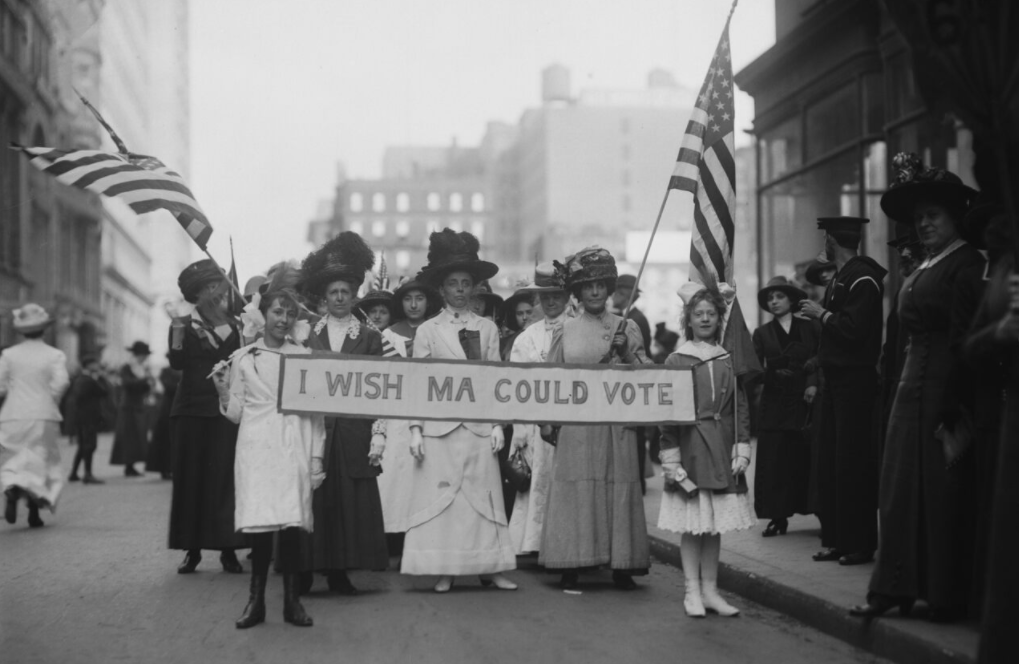
Agency is a key concept in social studies, but students often misunderstand or struggle with the term. A simple definition for agency is “the amount of control an individual has over decisions or actions in life.” While we often assume we have lots of agency, social structures such as religion, family, laws, the economy, or social class work to limit the power of individuals. It may be helpful to illustrate the concepts of agency and social structure on opposite ends of a continuum. Follow up with scenarios or examples to demonstrating how one’s power can be difficult to categorize.
Where Did the Concept of Agency Originate?
Enlightenment thinkers first proposed what became our modern concept of agency in the seventeenth century. Previous views held that the government of monarchs, family patriarchs, or religious leaders (on earth or beyond) decided what humans should, would, and could do. But thinkers such as John Locke rejected these long-held assumptions. He argued that individuals had the ability to make rational choices. Of course, Enlightenment thinkers were mainly males who narrowed the capacity of agency to individuals like themselves. Others who followed examined the balance between agency of humans and the power of wider societal structures. Should all the power be with individuals? Or with social structures? What is the perfect balance? How much power do social structures and individuals or groups of individuals really have in various situations and cultures?

Agency in History
The agency of individuals or groups of oppressed people such as women or the enslaved is often discussed in the study of history. Historians even disagree on the amount of agency held by people with power and those who were oppressed. For example, enslaved people had agency when they ran away. However, only a small percentage of enslaved people escaped to freedom. Teachers must be careful to avoid casting a rosy glow over oppressive structures by overstressing rare instances of agency. In general, a few were able to undermine the system, but many didn’t have the means or opportunity.
One way to both demonstrate and discuss the concept of agency is to display famous historical news photographs to the class. This slideshow of twenty-five famous photographs is especially useful. For example, as students view the 1968 photograph by Eddie Adams of a South Vietnamese police chief shooting a Vietcong suspect, ask the following questions:
- “How would you rate the agency of each person in the photo on a scale of one to five?” (one for a person who has no power to walk away or change the situation, and five for a person who has all the power).
- “What is the agency or power of the photographer in how the scene is portrayed?”
- “How much agency does the newspaper, magazine, or web publication have over how the viewer perceives the situation?”
- “What wider structures take away the agency of the people in the photo, the photographer, and the publisher of the photo?”
Agency in Economics
A common perception in the American free market system is that when an individual works hard enough, that person will be an economic success. This perception assumes people have all the agency in their economic success or failure. In the opposite view, many structures may prevent a person from becoming an economic success. For example, jobs paying living wages may not be available, tuition to learn the skills needed for a good job may be too expensive, or family responsibilities such as childcare may prevent a person from getting or keeping a good job.
Economic lessons often present simple explanations of wants and needs, assuming that individuals always make rational choices and therefore have agency. However, the more recent field of study known as behavioral economics presents a different view. If we are making irrational choices when we buy things we don’t need or can’t afford, are we exercising our agency? Or has our agency been taken away by other factors, including manipulation by marketers, sociological factors, or psychological perceptions?

Agency in Daily Life
How much agency do students have in your classroom? Classroom management techniques often fall on a continuum between “student in control” and “teacher in control.” Another way to frame agency is to ask students who influences their behavior and individual decisions the most—themselves, the school, teachers, or family? For example, a teenager wants to stay out all night, but her family sets a strict curfew and enforces the rule with punishments. If she ignores the rule and stays out all night, she has agency. But when she returns home and is punished, her control over her life has been reduced by her family structure.
Ask students who has agency over their food choices. We like to say that we, as individuals, have all the agency. However, our choices are limited by the products offered at the grocery, the food we can produce or prepare for ourselves, and the amount of money we have to purchase it. We are also influenced by the tastes of our family, culture, and community. The example the impact of the COVID-19 pandemic on food production, processing, and distribution is an example of how our agency of food choice is reduced by outside factors far from our control.
Introducing the concepts of agency and how social structures impact the choices of individuals early in your school year serves as the basis for many in-depth discussions and activities throughout the year. Students must think critically about historical and current issues when they are asked to examine who is really in control.
Seeking more professional learning resources?
See what our professional learning department can do for your teaching
Cynthia W. Resor is a social studies education professor and former middle and high school social studies teacher. Her dream job? Time-travel tour guide. But until she discovers the secret of time travel, she writes about the past in her blog, Primary Source Bazaar. Her three books on teaching social history themes feature essential questions and primary sources: Discovering Quacks, Utopias, and Cemeteries: Modern Lessons from Historical Themes; Investigating Family, Food, and Housing Themes in Social Studies and Exploring Vacation and Etiquette Themes in Social Studies.